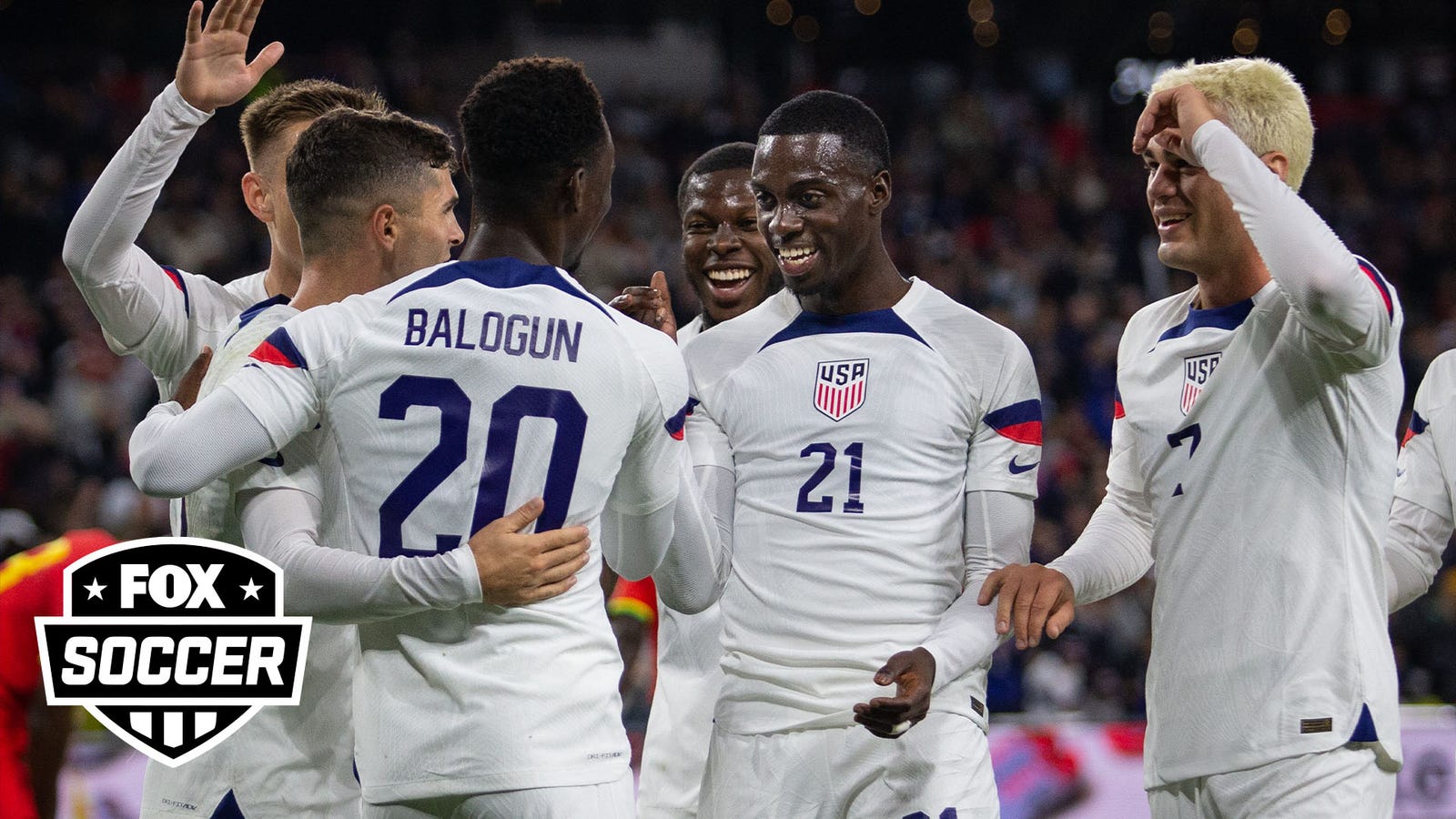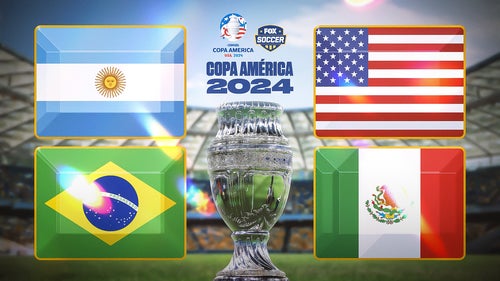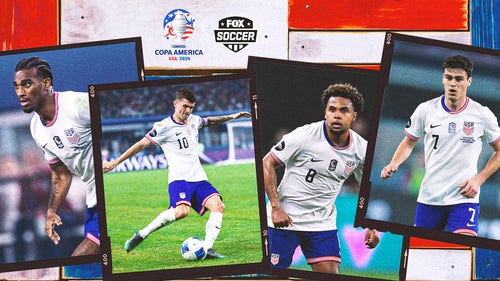
The Summer of Stars is coming: Here's everything you need to know
With the biggest World Cup in soccer history now just two short calendar years away, the summer of 2024 offers the perfect dress rehearsal.
This June and July, three of the planet's six FIFA-designated regions will align in the form of the European Championship and the second expanded Copa América in eight years — one that will bring current World Cup-holders Argentina, record five-time champions Brazil and eight other South American teams to the United States to compete with the hosts, Mexico's fanatically supported El Tri plus four more of North and Central America and the Caribbean's best.
It all starts when the Euros kick off on June 14. Over just two decades, the beautiful game's second-largest international tournament has gone from a niche pay-per-view product in the U.S. to a quadrennial staple on the American sports calendar.
"Not a lot of big sporting events are going on in the U.S. in the summer, and soccer kind of takes center stage," former U.S. midfielder and current FOX Sports soccer analyst Stuart Holden said in a phone interview this week. "The Euros kind of feels like a mini World Cup."
This year's event promises to be the highest-profile yet. Host Germany boasts more large stadiums than any other country on the continent; just one of the 10 selected (in 10 host cities) seats fewer than 49,000, all but ensuring that Euro 2024 will shatter the record 2,427,303 fans who attended France 2016 eight years back.
Bayern Munich's sparkling Allianz Arena will stage the opener between Die Mannschaft and Scotland. The historic Olympiastadion in Berlin is a fitting place for the final. And for those watching at home, Berlin's Brandenburg Gate will provide a backdrop every bit as iconic as the Eiffel Tower or Sydney Opera House were during the last two Women's World Cups.
All eyes will be on the Euros for a full week before Copa América joins it as an equal under the global spotlight. On June 20, just a few hours after Denmark and co-favorite England meet in Frankfurt and recent champions Spain (2008, 2012) and Italy (2020) square off in perhaps the most awaited contest of the group stage in Germany, Lionel Messi and his Albiceleste open the Copa at Mercedes-Benz Stadium in Atlanta against either Canada or Trinidad and Tobago. On June 24, the combined Copa/Euro schedule features contests involving Brazil, Italy and Spain — countries with 10 World Cup titles between them.
If four games across both tourneys in one day will be a treat for soccer lovers, the lineup on June 25 and 26 is positively heaven-sent. No fewer than a dozen Euro and Copa matches will be played during that single 48-hour period, with Messi's Argentina, Harry Kane's England and Kylian Mbappé's France all in action on the 25th.
Factoring in stoppage time, it means that more than half of each day — 12 hours-plus — will be filled with high-stakes, world-class, must-see soccer. And of course, there's an added perk for supporters in the U.S., with the home team hoping to reach a Copa final for the first time after making the semis in 1995 and 2016.
"That's the beauty of the Copa when it's in this format," said Holden, who could start his summer at the Euros before coming home to call the USMNT's group stage matches. "The U.S., Mexico and Canada are obviously familiar teams to people on this side of planet, but then you're mixing in powerful and historic soccer nations, and genuine superstars. It's a recipe for people to jump on the bandwagon and get excited about it.
"But as much as we love seeing these big teams come here," Holden added, "I don't think anything is more important than seeing the U.S. team do well."
That imagination-capturing momentum should grow as the summer wears on. While the frequency of games will dwindle as teams get eliminated in the knockout rounds, the stakes will grow exponentially. Four do-or-die quarterfinals are set for July 6, two in each tourney, with a Euro and a Copa semi slated for both July 9 and 10. July 14 will see the new champions of both Europe and the Americas on the same day for the first time ever, with Miami's Hard Rock Stadium the pick for the Copa decider.
Eighty-three games in all will have been played by the time the Summer of Stars is done. That's not quite as many as the 104 we'll see at the first 48-nation World Cup in 2026, but it will still be an unprecedented celebration of the people's favorite sport — and a fitting tune up for what's to come two years later in cities across North America.
Yet as much as that hotly anticipated World Cup is already starting to appear on the horizon, this summer's festivities will stand on their own.
The world's game has never been in a better place in the U.S., which is also set to host the first 32-team FIFA Club World Cup next year. With an ever-growing MLS now fronted by Messi himself and massive NFL arenas from coast to coast ready to be temporarily converted into first-class soccer cathedrals, the country is ready to become the game's epicenter over the next 30-odd months.
That journey starts on parallel tracks this June – first with the controlled intensity of the Euros, then with Copa matches that can be more street fights than fútbol – though the quality on display is every bit as high as on the other side of the Atlantic Ocean.
"The European teams play each other so often you get these fast-paced, tactical games," Holden said. "Then you have the last Copa America final between Brazil and Argentina, which was basically a bloodbath for 90 minutes."
This summer could also be the last time we see living legends like Messi, Cristiano Ronaldo and Luka Modrić suit up in their countries' colors. Messi will turn 37 during the first week of the Copa. Modrić and Ronaldo are already 38, with the latter celebrating another birthday next month.
Two years in international soccer is an eternity. But the Summer of Stars will be here before we can blink, and it will be glorious. For five weeks, what happens in games played at the highest level will be on everyone's screens and on everyone's lips in every other corner of the globe – not least right here at home.
"You're getting an opportunity over the next couple of years to see and touch genuine, competitive high-end soccer," Holden said. "If you can watch this and not get excited about the 2026 World Cup, I'm not sure you have a pulse."
Doug McIntyre is a soccer writer for FOX Sports. Before joining FOX Sports in 2021, he was a staff writer with ESPN and Yahoo Sports and he has covered United States men's and women's national teams at multiple FIFA World Cups. Follow him on Twitter @ByDougMcIntyre.













































































































































